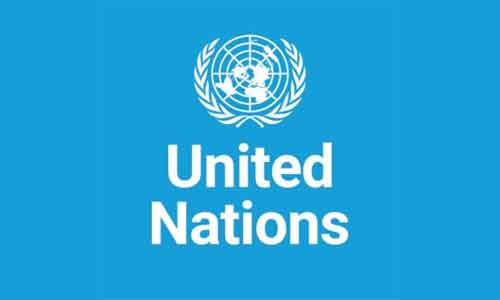Unfortunately, no eastern or western powers and organizations have yet succeeded to act upon their commitment and humanitarian responsibilities ending the imposed war and conflicts in the country. Although some of the mentioned powers have overtly acknowledged that they have not come here for state building, Afghan people have more expectations from them, especially from the United Nations, as whose main mission is establishment of international peace and security. Undoubtedly, the united nation has more legal and moral responsibility regarding ongoing crisis such as war and terrorism, corruption, poverty and starvation smuggling and organized crimes, uncontrolled immigration, destruction of environment, human rights violation, ethnic issues and so on…
Given the United Nations’ goals, this article is going to raise some questions which are already on tip of Afghan’s tongue about United Nation in Afghanistan. Many of the people are not sure what the main responsibility of United Nation is in Afghanistan. They expect it play more constructive role as a highest international body for peace and security. In fact, most people are confused about United Nations’ role in the world and in Afghanistan. They blame or limit its role in giving some causality reports, condolence to martyred families and does some charity work in the country.
Historically, the United Nations has had different report card in Afghanistan. During the occupation of Afghanistan when aggressed by the Soviet Union it failed to play a preventive role in Afghanistan. The Soviet Union attack on Afghanistan has not only influenced the peace and security of 25 million people in Afghanistan but also threatened the world peace and security. Many regional and world countries have been affected by the aggressive war but the united nation has even failed to take a firm stance against the Soviet military occupation or to adopt a serious and practical resolution about Afghanistan. According to historic records, sometimes it condemned the aggression without naming the aggressor.
However, the United Nations made more efforts after the withdrawal of Soviet forces from Afghanistan. In fact, it worked harder to implement the provisions of the Genoa Agreement, but in practice the process of negotiations between Najib government and Pakistan faced a serious deadlock. Pakistan and United States insisted on withdrawal of Soviet troops from Afghanistan and the formation a new government by Peshawar-based groups. Dr. Najib wanted to escalate the ethnic divisions between the Mojahedin groups and thereby ensured the survival of his government but eventually found himself trapped and was forced to flee the country. He wanted to leave the country but put the groups amid fire of ethnic divisions that prevented by General Dostum’s forces from escaping from Kabul airport.
The fall of the Kabul government paved the way for the formation of an Islamic government led by the Mojahedin leaders but neither had they experience of governance nor a clear definition of Islamic system. Therefore, Mojahedin leaders failed to show any competence in governance and establishment of functional system in the country. As a result, civil wars broke out between Mojahedin groups in the country’s capital and provinces which marked a new phase of insecurity crisis in Afghanistan. During the rule of the Mojahedin, although the United Nations made some efforts for peace and security and for reconciliation between rival groups through its special envoys but these efforts did not yield tangible results. According to the United Nations, the war of Mojahedin was a civil war and so the United Nations Security Council not considered it as its duty to intervene. Therefore, the UN Special Representative sought to resolve the Afghan issue through compromise with the relative participation of all groups in power, but it neglected from the role of external factors in the country crisis.
After emergence of the Taliban and establishment of relative order and security in areas under control of the group, the United Nation hoped that the group will be able to form a comprehensive government in Afghanistan. The meeting and expression of Taliban representatives with the special envoy of United Nation in Pakistan has farther strengthened the optimisms but the big Taliban summit in Kandahar which was held behind closed doors about establishment of next government and new order destroyed any hope for the future. The Taliban has overtly denied any talks with the Mojahedin but the United Nations did not break its silence. Even it did not seriously react against the systematic massacres of other ethnic groups, especially the Hazaras in Mazar and Yawalang and also other Harazas who forced to migrate. It can be said that the United Nations was indifferent to the Taliban’s actions against other tribes and groups, and has refrained from exerting serious political and economic pressure on the Taliban. The economic, political, and military sanctions which later imposed were because of their linkage to al-Qaeda terrorist group.
Nevertheless, after the 9/11 event which entirely changed the situation in Afghanistan the United Nations and Security Council have issued resolutions paving the way for countries to intervene in Afghanistan. During this period, the United Nations took Afghanistan’s issues more seriously and paved the way for peace and stability in the country through political and military pressure. For the first time, the United Nations has authorized the United States and its allies to attack on Afghanistan and formally support the Taliban’s alternative government. In fact, the United Nation made its utmost efforts and assistance with Afghanistan within the first years of new political system but with decline of other international assistance, it has also decreased its activities and support from Afghanistan. for example, it is said that many of UNMA local offices has closed in the country and almost 50% of its personnel decreased while the level of insecurity and poverty has unprecedentedly increased in the country.
Home » Opinion » The Role of United Nation in Peace and Security In Afghanistan
The Role of United Nation in Peace and Security In Afghanistan
| Mohammad Zahir Akbari

